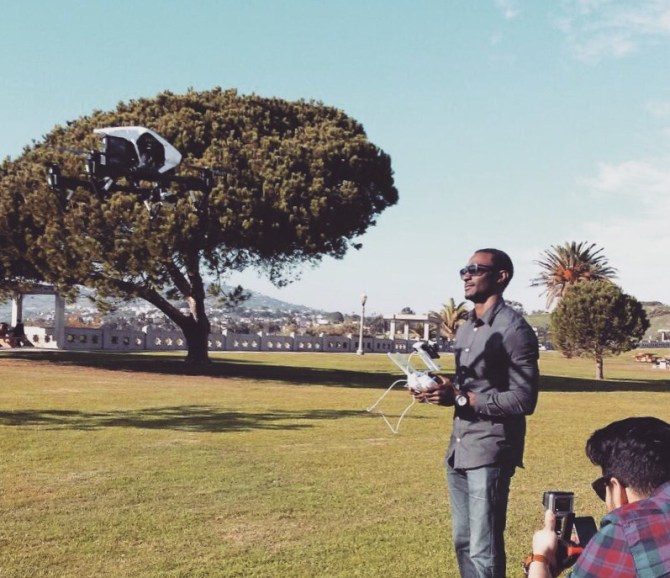 In a statement released on his blog yesterday, an LA filmmaker who was the first person to be charged under LA’s anti-drone ordinance reported that the jury had ruled in his favor.
In a statement released on his blog yesterday, an LA filmmaker who was the first person to be charged under LA’s anti-drone ordinance reported that the jury had ruled in his favor.
Arvel Chappell III was both the first person charged under the anti-drone ordinance, and was the plaintiff in the first case to go to trial on a drone-specific criminal charge. California has some of the heaviest drone regulation in the nation, with many cities and towns passing their own drone laws.
Chappell was cited and had his drone was confiscated for allegedly flying to close to the LAPD’s Air Support Division, Piper Technical Center, last December – immediately after the city of Los Angeles enacted a new anti-drone ordinance. Represented by Terrence Jones at Ballard Spahr LLP, he decided to fight the charges to defend his – and the entire aviation community’s – right to fly a drone responsibly. Chappell filed a constitutional challenge – citing the FAA’s “pre-emption” – to the ordinance in Los Angeles Superior Court in March.
“My entire life’s work throughout my career as a filmmaker, aerospace engineer and pilot has been in promotion and support of aviation and aviators,” said Chappell, explaining his decision. “The pilots flying in the skies above us are not only my peers but also my friends.”
Chappell is passionate about flying; he sits on the board of directors for Giving Kids Wings, a nonprofit dedicated to teaching kids about aviation, and is in pursuit of a private pilots license. “Ironically, Chappell’s most recent film—Compton: The Antwon Ross Story—is the story of a young African American male who turns to aviation as a means of avoiding getting caught up in the criminal justice system,” says his statement.
Chappell’s challenge that the City could not pass drone-related laws due to the FAA’s declared right to be the sole regulators of airspace – as described in the FAA Fact Sheet released earlier this year – was upheld by the LA Supreme Court. This led to most of the charges against Chappell being dismissed, leaving only the charge that Chappell – who is an aerospace engineer, in addition to being a filmmaker – operated his drone in a “careless or reckless” way. The jury voted unanimously that he had not, returning a verdict of “not guilty.”
“All along, I’ve maintained that I would never do anything to put a fellow aviator in harm’s way, so this verdict validates that,” said Chappell. “And now that the judge has ordered the City to return my drone, I can continue my filmmaking,” Chappell added.
 Unmanned Aerial Vehicle The latest drone news
Unmanned Aerial Vehicle The latest drone news



